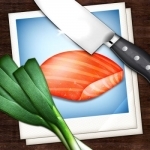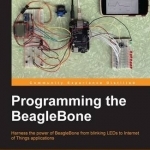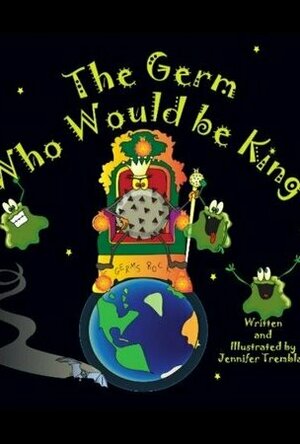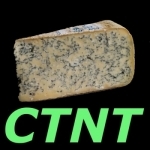
The Photo Cookbook
Food & Drink and Lifestyle
App
The Photo Cookbook is like a private cooking course in your kitchen with an expert chef who makes...
Lyndsey Gollogly (2893 KP) rated Magical Midlife Invasion ( Levelling up #3) in Books
Jan 28, 2023
kindle
Magical Midlife Invasion ( Levelling up #3)
By K.F. Breene
⭐️⭐️⭐️⭐️
Jessie is well on her way to learning her new life and settling in. The tough alpha, Austin, has joined her team, and she has painstakingly learned to fly. At the moment, life couldn’t get any better.
But it can get a whole lot…more irritating.
Her parents have decided to visit. They don’t know anything about magic, about Jessie’s new digs, or about the crazy crew living in and around Jessie’s house. She must do everything in her power to keep the truth away from them.
Which would be much easier without the unfelt presence lurking within Ivy House’s borders. It seems an enemy has figured out a way to magically bypass Ivy House’s defenses. Jessie is completely exposed.
The real battle, however, won’t be with the incoming force. It will be between Mr. Tom and Jessie’s mom, each intent on being the most helpful. Mr. Tom might have met his match, and he is not pleased.
Just when things were finally settling down, Jessie is in the thick of it again, and this time, the turmoil is all around her.
This series is so good! It’s so funny and quirky and a joy to read. The characters are you unique and funny you get so invested in what’s happening with them. Jessie and Austin need their head banging together really hard!! The only thing is that bloody room of killer dolls and the house finding it funny letting them put. I will now have nightmares of little killer dolls carrying knives and climbing trees 😂😂😂. Definitely a series to lighten up your reading load.
Hazel (1853 KP) rated The Storyteller in Books
Dec 7, 2018
Jodi Picoult is the bestselling author of numerous novels, with <i>My Sister’s Keeper</i> being the most well known, perhaps. All of her stories are well written although it is still possible to notice improvements in the writing over the years right up until now with her latest, <i>The Storyteller</i>, which quite possibly could be her best yet.
Arguably, <i>The Storyteller</i> does not quite read as a Jodi Picoult novel is known to. This is, in part, because of the nature of the story. Most of her previous books deal with medical ethics and/or court cases, whereas this story contains neither. <i>The Storyteller</i> contains a combination of past and present - the main focus being on the Holocaust.
Four people narrate the novel: two in the present day and two giving an account of their experience during the Second World War. It begins with Sage Singer, a 25 year old, hermit-like woman with a disfiguring facial scar – the result of a terrible accident, one that also led to the death of her mother. For the past three years Sage has been participating in a grief group – a place where people who have lost loved ones can come together and talk about their feelings. After three years surely Sage would no longer need the help of the group? However she still attends, not because she finds it helpful, but for the opposite reason. She even says herself: “If it were helpful I wouldn’t still be coming.” It unfolds that she still blames herself for her mother’s death despite the reassurances that it was an accident and not her fault.
It is through the grief group that Sage meets an elderly man, Josef Weber. After becoming friendly and discovering that Sage comes from a Jewish family, Josef confesses to something terrible – he was a Nazi during the war. He killed people. He wants Sage to represent all the Jews he killed and forgive him. Then he wants her to help him die.
Whilst, Josef recounts his experience of being part of the Nazi party, another account is also given. Minka, Sage’s grandmother, describes the terrors she faced as an imprisoned Jew suffering fates such as the deaths of all her family and friends and her time in Auschwitz. Another element to the novel is the vampire story Minka wrote as a teenager. This is interspersed between the other chapters of the book. Unwittingly, Minka’s fictional tale reflects the alienation and destruction of the Jews. The final character is Leo who, like Sage, is narrating the present day, and trying to locate ex-Nazi members in order for them to be punished by the government.
One thing to praise Picoult for, not just in <i>The Storyteller</i>, but also in all her novels is the amount of in-depth research she undertakes to make her stories as accurate as possible even though they are fictional. Minka’s account was written is such a way that it was almost believable that Picoult had been there and experienced it herself. She even learnt to bake bread so that she could write from the point of view of a baker. This is pure dedication!
<i>The Storyteller</i> is an amazing, beautiful book, which is not purely an enjoyable read. It informs, shocks and stays with you for a long time. You will question your own morals and ability to forgive. Is anyone entirely evil? Is anyone entirely good? Perhaps we are both, so why should anyone have the right to treat others as inferior from themselves?

Learn English - Live Teachers!
Education, Games and Stickers
App
Join the over 1 million people who love learning English using OKpanda. When you use OKpanda you...

Programming the BeagleBone
Book
Master BeagleBone programming by doing simple electronics and Internet of Things projects About This...

Paris By Metro – Easy subway, Train & Tram Maps
Travel and Navigation
App
VISITING PARIS? Let Paris By Metro help you see more of the city and suburbs without getting lost -...

The Cooks Encyclopedia
Food & Drink and Lifestyle
App
The Cooks Encyclopedia is your complete, professional guide to shopping for and creating meals, from...




